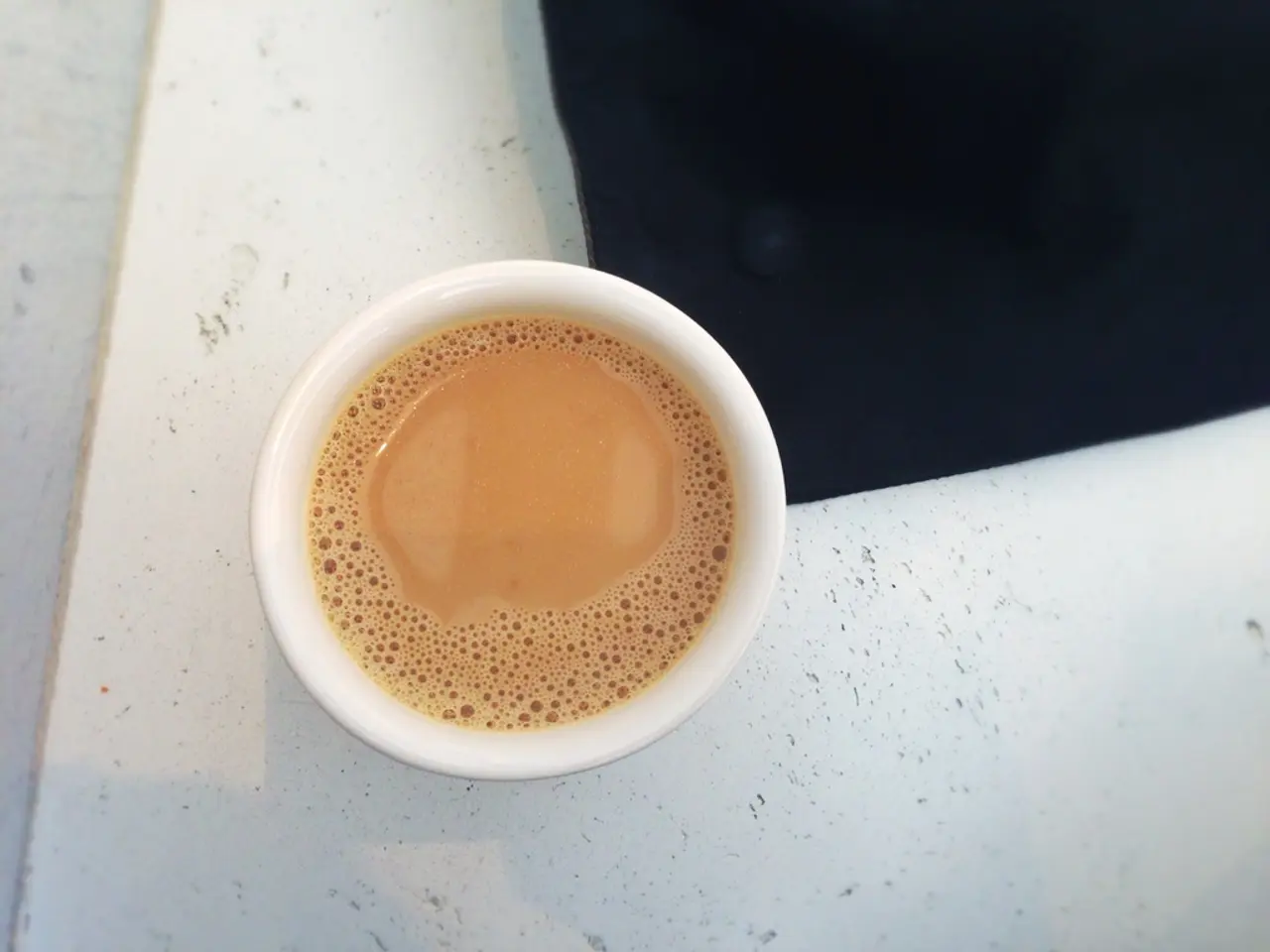Importance of Hydration during Heatwave: Essential Factors to Consider - Heat-Related Dangers of Alcohol Consumption: Important Precautions to Consider
In the scorching heat of summer, staying hydrated and making the right dietary choices is crucial for maintaining good health. Dirk Weber, a nutritionist at the Karlsruhe Institute of Technology's Institute of Sport and Sport Science, offers valuable insights on how to navigate your beverage and food choices during hot weather.
According to Weber, it's essential to avoid diuretic beverages like coffee and alcohol, which can promote dehydration. Instead, water should be your primary choice. However, it's important to steer clear of sugary, caffeinated, or alcoholic drinks, as well as electrolyte-free beverages, since they can contribute to dehydration.
In cases of heavy sweating, electrolyte-containing drinks like oral rehydration solutions or diluted sports drinks might be recommended to replace lost minerals such as sodium, potassium, and magnesium.
In terms of dietary considerations, consuming water-rich fruits and vegetables (e.g., watermelon, cucumber) and light, easily digestible meals can help avoid excessive metabolic heat production. Salty snacks in moderation might help maintain electrolyte balance if sweating heavily. On the other hand, it's advisable to avoid heavy, fatty, and spicy foods that can increase body heat or cause discomfort.
When sweating, one loses not only fluid but also sodium, magnesium, and potassium. To counteract this, it's advisable to drink mineral water with a high mineral content, according to Weber. The body regulates the intake of minerals, and negative effects due to overdose are virtually excluded, provided no dietary supplements are used.
Weber also suggests having five to six small meals distributed throughout the day, with light meals like porridge in the morning, salads, soups, or turkey being advisable. Eating too late can cause the body to produce heat at night, leading to poor sleep, so it's best to finish meals several hours before bedtime.
Cold drinks should be avoided as they can cause short-term heat production and potential problems in the digestive tract. Instead, warm tea is a good alternative and contains no calories but many other healthy ingredients. Mint tea has the additional benefit of creating a subjective feeling of coolness due to the menthol it contains, but this does not cause additional stress on the body.
When it comes to food, calories, as energy, should be considered, as their processing in the body produces heat. Grilling, popular in summer, can have unhealthy byproducts, some carcinogenic, according to Weber. Eating large meals has a significant influence on heat production in the body, so it's best to opt for smaller, more frequent meals.
Circulatory problems due to heat are usually only a concern from 30 degrees, but can vary based on individual sensitivity and physical load. It's important to remember that everyone's needs are different, and the amount of food one should eat depends individually on body type and need, with no set guidelines.
In conclusion, staying hydrated and making the right dietary choices is crucial during hot weather. While water should be your primary beverage, electrolyte-containing drinks can be beneficial in cases of heavy sweating. Dietary considerations include consuming water-rich fruits and vegetables, light meals, and avoiding heavy, fatty, and spicy foods. It's also advisable to drink mineral water with a high mineral content and to have five to six small meals distributed throughout the day.
- In adherence to the community policy on health-and-wellness, it's important for employers to consider providing information on hydration and nutrition during hot weather, as outlined by Dirk Weber, a nutritionist at the Karlsruhe Institute of Technology's Institute of Sport and Sport Science.
- For those working in fields under the scorching sun, understanding the employment policy that fosters health-and-wellness would be beneficial, as it might include provisions for access to electrolyte-containing drinks or regular break periods for hydration and nutrition, as suggested by Weber.




